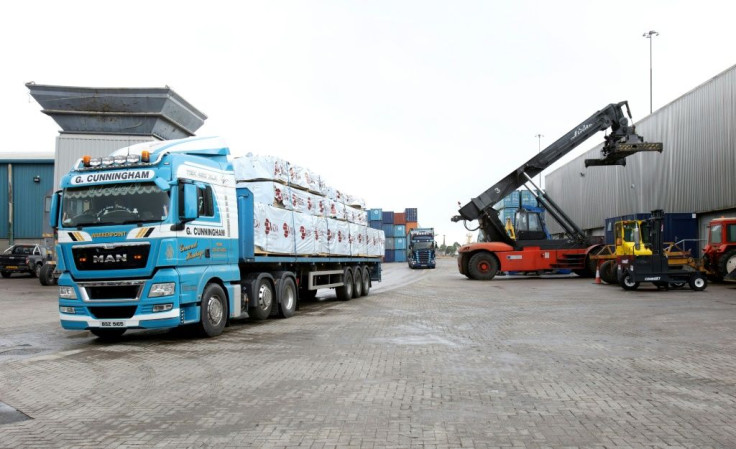Johnson's Brexit: A Lesser Evil For The UK Economy?

British Prime Minister Boris Johnson's Brexit deal, which was welcomed by business with a sigh of relief, could limit the damage of a hard EU departure but still won't be painless.
Business leaders see any deal, however imperfect, as better than leaving the bloc on October 31 and immediately returning to sky-high customs duties and other restrictions.
If parliament passes Johnson's agreement on Saturday, the lifting of uncertainty will give renewed momentum to the economy, boosting potential investment, including from overseas.
Consumption could also increase.
But economists Euler Hermes warned in a note: "In the short term, the deal will not help the UK avoid a technical recession."
Economic activity has slumped because of more than three years of uncertainty caused by Brexit talks since the landmark 2016 referendum on Britain's EU membership.
Growth is sluggish and activity even contracted in the second quarter of this year.
If the deal goes through, factory output and purchases will slow as the stockpiles built up in anticipation of a possible "no-deal" are reduced, Euler Hermes said.
Longer term, Jonathan Portes, of The UK in a Changing Europe think-tank, said Johnson's deal was "significantly worse for the UK economy" than that of his predecessor, Theresa May.
"The reason for the significant economic difference between May's deal and Johnson's proposals is because Great Britain will have no customs union with the EU, no level playing field arrangements and a limited, or quite possibly no free trade agreement," he told AFP.
"The Brexit proposal by Boris Johnson could reduce UK GDP per capita 10 years after Brexit by between 2.3 percent and 7 percent, compared to remaining in the EU," he added.

That chimes with the government's own estimations in a report published one year ago.
May's deal saw more modest estimates of a 1.9 percent to 5.5. percent reduction.
Fiscal headache?
The main sticking point in May's deal was the so-called "backstop", which was designed to keep the whole of the UK in a customs union with the EU to avoid the return of a hard border between British-run Northern Ireland and EU member Ireland.
The new agreement does away with that and although Northern Ireland legally leaves the EU with the rest of the UK, it will remain aligned to the bloc's customs arrangements.
Northern Ireland will stay part of the UK customs area. Goods imported to the province from outside the EU will be subject to UK duties, as usual.
But if goods from non-EU countries come into the EU via Northern Ireland, it will be up to Britain to apply EU customs -- which could pose problems.
Northern Ireland business leaders have already asked London to help them absorb the cost of the extra paperwork.
Value Added Tax is another sensitive issue. To protect the integrity of the single European market, EU rules concerning sales tax on goods will continue to apply to Northern Ireland.
As it stands, businesses are cautious about the deal until parliament votes for it, particularly given opposition from lawmakers.
If it doesn't pass, Johnson is legally bound to ask Brussels for an extension, which will again prolong uncertainty surrounding the economy and revive the prospect of a feared no-deal Brexit.
Approval will only mean the start of a process to negotiate a trade agreement between Britain and the EU, which could also be no easy task.
© Copyright AFP 2024. All rights reserved.





















